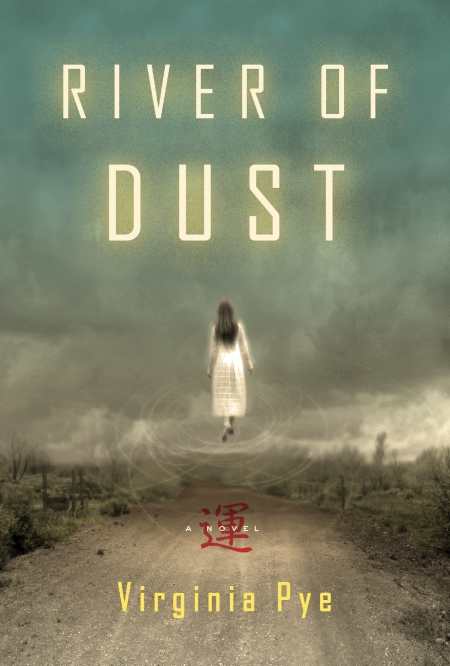River of Dust
Historical China odyssey may be a bit dramatic, but the author puts you in an exciting, believable time and place.
In Virginia Pye’s River of Dust, a tale of odyssey and human relationships in post-Boxer Rebellion China, the author has varying degrees of success in mixing the research, solid narrative, and detail necessary in writing any historically dramatic novel.
In the novel, Mongolian bandits kidnap Wesley, the young son of Oberlin-educated Reverend J. W. Watson and his pregnant wife, Grace, from their missionary compound near the Gobi Desert. While the reverend undertakes the brutal and seemingly impossible task of retrieving their son with his manservant Ahcho, his wife wrestles with her own intentions for their future, such as her commitment to the relationship and later with the characters close to her, especially Mai Lin, their ghostly amah—a native Chinese female servant. There is tension among all of the key characters, each continually struggling with the others to survive both emotionally and physically in their exotic locale.
River of Dust‘s characters are far from uninteresting, but their relations with each other come across as a bit melodramatic. Watson’s stubborn personality is too heroically clichéd, while his wife’s consideration of abandonment casts her equally so. In essence, one craves more information about the characters’ inner conflicts.
Oddly, River of Dust‘s major compelling elements are in exterior details. Pye’s well constructed descriptions of the harsh landscape, of the characters’ journeys and exterior struggles, get the reader involved in the text. Watson’s trek through arid deserts and nomadic encampments is elaborated right down to the crude bartering nomads and opium-den filth. The dust, the animal hides, the crude birthing techniques, the disease, the sermons—Pye writes with specificity page after page, and it works well, especially given that she admits in the afterword she has never even set foot in China and draws exclusively on her grandfather’s missionary experience there.
As historical fiction, River of Dust is a very earnest work. The reader is led through tightly written passages that provide harsh drama with an almost first-hand view through a foreigner’s eye. Too often writers create historical narratives that resemble fantasy realms more than anything from history. Pye might falter a bit with her characters and dialogue, but she puts you in an exciting, believable time and place.
Reviewed by
James Burt
Disclosure: This article is not an endorsement, but a review. The publisher of this book provided free copies of the book to have their book reviewed by a professional reviewer. No fee was paid by the publisher for this review. Foreword Reviews only recommends books that we love. Foreword Magazine, Inc. is disclosing this in accordance with the Federal Trade Commission’s 16 CFR, Part 255.

